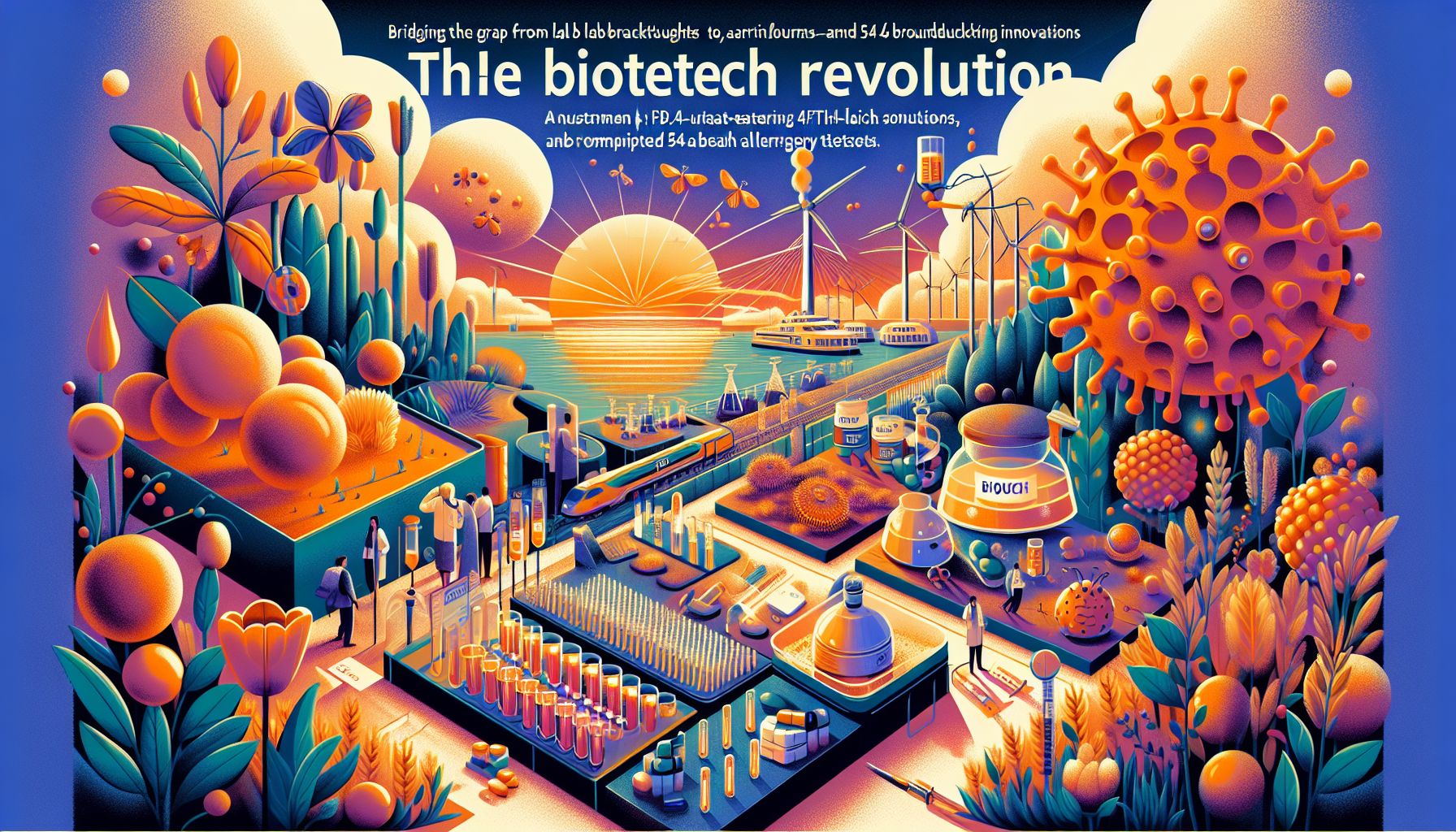Dutch Biotech Revolution: €17.6M Boost for 54 Groundbreaking Innovations

Hague, Monday, 25 November 2024.
Despite budget constraints, the Netherlands is doubling down on biotechnology with a strategic €17.6M investment across 54 pioneering projects. From PFAS-eating microorganisms to breath-based allergy tests, these innovations promise to transform healthcare, agriculture, and environmental protection. The funding aims to bridge the challenging gap between laboratory breakthroughs and market-ready solutions, positioning Dutch biotech for significant growth as global industry revenues are projected to triple by 2030.
Driving Innovation in Biotechnology
The Dutch government’s strategic allocation of €17.6 million through the Biotech Booster program is set to revolutionize the biotechnology landscape across multiple sectors, including healthcare, agriculture, and environmental protection. This financial boost aims to nurture 54 groundbreaking projects, each holding the potential to deliver significant societal and economic benefits. Minister Bruins highlighted the dual advantage of this investment, emphasizing that these innovations not only advance scientific progress but also stimulate economic growth, creating a fertile ground for future developments in the biotech industry.
Notable Projects and Their Impact
Among the projects receiving funding, researchers at the University of Twente are developing nanoparticles that can deliver antibiotics directly to bacteria, enhancing treatment effectiveness and combating antibiotic resistance. This initiative is particularly crucial as antibiotic resistance poses a growing threat to global health. In parallel, a team at Leiden University Medical Center has invented a non-invasive breath test to detect food allergies, potentially replacing uncomfortable and invasive traditional testing methods. These innovations represent just a fraction of the potential applications for the funding, each promising to yield substantial improvements in their respective fields.
Environmental and Agricultural Advances
On the environmental front, Utrecht University researchers have isolated microorganisms capable of purifying PFAS from wastewater, addressing a persistent environmental contaminant problem. Meanwhile, Arnhem Nijmegen University has discovered a bacterium that converts landfill methane into bioplastic feedstock, providing a sustainable solution to one of the most potent greenhouse gases. In agriculture, TU Delft’s creation of a biodegradable seed coating aims to reduce plastic use and improve crop health by incorporating beneficial microbes. These projects underscore the multifaceted approach of the Biotech Booster program, targeting health, environmental, and agricultural challenges simultaneously.
A Promising Future for Dutch Biotech
The Biotech Booster program, backed by the National Growth Fund, exemplifies the Netherlands’ commitment to maintaining its competitive edge in biotechnology. By supporting these diverse projects, the government is not only fostering innovation but also ensuring that the country’s biotech sector is well-positioned to capitalize on the projected tripling of global biotech revenues by 2030. As scientists and companies work to bring these inventions to market within the next two to four years, they are paving the way for a follow-up round of funding that could further solidify the Netherlands as a leader in biotechnology innovation.

